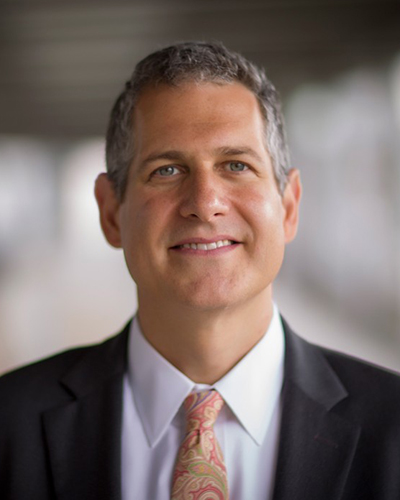Genitourinary Cancers
Philosophy
The role of the medical oncologist is to comprehensively care for patients with genitourinary cancers including prostate cancer, kidney cancer, bladder cancer, and testicular cancer.
We work closely with other subspecialists, including urologic oncologists and radiation oncologists, to develop a comprehensive treatment plan for each patient seen in our multidisciplinary urologic oncology clinic. When possible, cure is the goal, and when not, the goal is the prolongation of life with an emphasis on quality of life.
To this end, we create treatment plans that minimize side effects and maximize efficacy within each individual patient’s framework of goals and values. We use innovative imaging and molecular diagnostics, immunotherapy, targeted therapy, hormonal therapy, chemotherapy, and radionuclide therapy.
Diseases Treated
Prostate Cancer
The treatment of patients with prostate cancer is based on the clinical stage ranging from disease localized to the prostate gland (localized disease) to disease that has spread to other sites in the body (metastatic disease). For localized disease, novel hormonal agents in combination with state-of-the-art radiation approaches or surgery are used.
For patients with metastatic disease, novel hormonal agents, immunotherapy, chemotherapy, targeted radioligand therapy, and in collaboration with radiation oncology, stereotactic body radiation therapy may be used for metastatic sites. For treatment planning, innovative imaging (e.g., PSMA imaging) and molecular diagnostics including DNA and RNA sequencing may be performed.
In addition, clinical trials are available for patients with both localized and metastatic prostate cancer.
Examples of treatments for metastatic prostate cancer:
- Novel hormonal agents, such as abiraterone acetate, enzalutamide, apalutamide, and darolutamide
- Radiopharmaceutical and targeted radioligand therapy such as Radium-223 and lutetium 177 vipivotide tetraxetan
- Immunotherapy such as Sipuleucel-T
- Clinical trials including novel immunotherapy, bispecific antibodies, and androgen receptor degraders
Kidney Cancer
The treatment of patients with kidney cancer is based on the clinical stage ranging from disease localized to the kidney (localized disease) to disease that has spread to other sites in the body (metastatic disease). For localized disease, we work closely with our urologic oncology colleagues in determining a management plan which may include surgery, targeted therapy, and immunotherapy.
For patients with metastatic disease, a treatment plan is developed which may include targeted agents, immunotherapy, and combination approaches. In collaboration with radiation oncology, stereotactic body radiation therapy may be used for metastatic sites. For treatment planning, innovative imaging and molecular diagnostics including DNA and RNA sequencing may be performed.
In addition, clinical trials are available for patients with both localized and metastatic kidney cancer.
Examples of treatments for metastatic kidney cancer:
- Combination immunotherapy, such as ipilimumab plus nivolumab
- Combination targeted therapy and immunotherapy such as axitinib plus pembrolizumab, cabozantinib plus nivolumab, and lenvatinib plus pembrolizumab
- Clinical trials including novel immunotherapy and targeted therapy
UNC was first selected by the VHL Alliance as a von Hippel-Lindau Comprehensive Clinical Care Center (VHL CCCC) in 2012, joining the ranks of over 20 other clinical care centers across the country. Our center evaluates and treats patients with familial syndromes that are associated with kidney cancer including von Hippel-Lindau (VHL); Birt-Hogg-Dubé syndrome (BHD); Hereditary Leiomyomatosis and Renal Cell Carcinoma (HLRCC); Hereditary Papillary Renal Cell Cancer (pRCC) and more. The long-term care of patients with any of these syndromes is often complex and involves many medical specialties and health care providers. At UNC, we have a large team of multidisciplinary providers who participate in the care of these patients. The UNC VHL CCCC is co-directed by Dr. Tracy Rose and Mary Dunn, NP.
Bladder Cancer
The treatment of patients with bladder cancer is based on the clinical stage ranging from disease localized to the bladder (localized disease including both non-muscle invasive and muscle-invasive disease) to spread of the cancer to other sites in the body (metastatic disease). For localized disease, we work closely with urologic oncology in determining a management plan which may include immunotherapy, chemotherapy, and surgery.
For patients with metastatic disease, a treatment plan is developed which may include chemotherapy, targeted agents, immunotherapy, and antibody drug conjugates. In collaboration with radiation oncology, radiation therapy may be used for certain sites of cancer. For treatment planning, innovative imaging and molecular diagnostics including DNA and RNA sequencing may be performed.
In addition, clinical trials are available for patients with both localized and metastatic bladder cancer.
Examples of treatments for metastatic bladder cancer:
- Immunotherapy, such as pembrolizumab and avelumab
- Targeted therapy such as erdafitinib
- Antibody drug conjugate therapy such as enfortumab vedotin and sacituzumab govitecan
- Clinical trials including novel immunotherapy, targeted therapy, antibody drug conjugates and combination approaches
Testicular Cancer
The treatment of patients with testicular cancer is based on the clinical stage ranging from disease localized to the testis (localized disease) to spread of the cancer to other sites in the body (metastatic disease). The goal for all patients with testicular cancer is cure. For localized disease, we work closely with urologic oncology and radiation oncology in determining a management plan which may include surgery, radiation therapy, and chemotherapy.
For patients with metastatic disease, a treatment plan is developed which may include chemotherapy and peripheral stem cell transplant.
In addition, clinical trials are available for patients with testicular cancer.
Examples of treatments for testicular cancer:
- Chemotherapy
- Peripheral stem cell transplant
- Radiation therapy
- Clinical trials including a novel CAR-T cell therapy (only available at UNC)
The UNC Testicular Cancer Survivorship Clinic was established in 2008 as part of a LIVESTRONG Survivorship Center of Excellence grant. Men with testicular cancer are transitioned to this clinic following definitive therapy for their testicular cancer. A benefit of this disease-specific clinic includes expert, individualized care to a patient population who have unique post-treatment needs.
Patients will receive a Survivorship Care Plan (SCP), history and physical, review of diagnostics, management of treatment-related toxicities, discussion of health maintenance (e.g., exercise, diet, substance use, sexual health, etc.), and assessment of any issues related to uncertainty (e.g., fear, depression, anxiety). Patients are referred to other specialists as needed, including nutrition, the UNC Adolescent and Young Adult Program, UNC Comprehensive Cancer Support Program, among others. This clinic is a nurse practitioner-led clinic, coordinated by Mary Dunn, NP.
Rare Cancers
Ureteral, urethral, renal pelvis, penile, adrenal, and other rare subtypes of bladder, kidney, prostate cancer, and testicular cancer. Our treatment of these cancers is guided by best available clinical and biologic evidence and tailored to each patient. In addition, clinical trials may be available for rare genitourinary cancer types.
Our Team
Our team is organized around the multidisciplinary urologic oncology program. The program is composed of all clinicians, from all related specialties, with a shared passion to provide compassionate, state-of-the-art care for patients with genitourinary cancers. It includes urologic oncology, radiation oncology, radiology, pathology, medical oncology, pharmacy, nursing, and palliative care.
The multidisciplinary urologic oncology program meets every Thursday afternoon to discuss new patient visits. We believe strongly that this collaborative approach, with everyone reviewing and discussing imaging, pathology and other data together improves care. We have also physically structured our clinics so that we all see patients in the same space at the same time. We believe that this facilitates interdisciplinary discussions, improves care, and provides an opportunity for patients to learn about the potential treatment options at a single visit.
Nurse Navigators
Nurse navigators allow us to bring to bear the powerful resources of a large and complex program, with a single point of contact for patients and their families. Nurse navigators provide supportive care, patient counseling, and care coordination.
Clinical Pharmacy Services
Pharmacists are an integral part of multidisciplinary care for patients with cancer. They provide important education for patients and caregivers at the beginning of a new treatment. They also meet regularly with the patients and caregivers in collaboration with the providers to monitor and manage side effects associated with cancer therapies. Pharmacists are also vital in identifying key medication interactions and providing recommendations for dose modifications based on patient specific factors.
Medical Oncology Providers
-
Richard M. Goldberg Distinguished Professor of Medicine
Chief, Division of Oncology
George Gabriel and Frances Gable Villere Distinguished Professor of Medicine
Vice Chief for Research & Education
Family Nurse Practitioner
Assistant Professor of Medicine
Adult Nurse Practitioner
Rush S. Dickson Distinguished Professor of Medicine
Assistant Professor of Medicine
Pharmacist
Associate Professor of Medicine
Inpatient Service Line Leader
Associate Professor of Medicine
Clinic Medical Director









